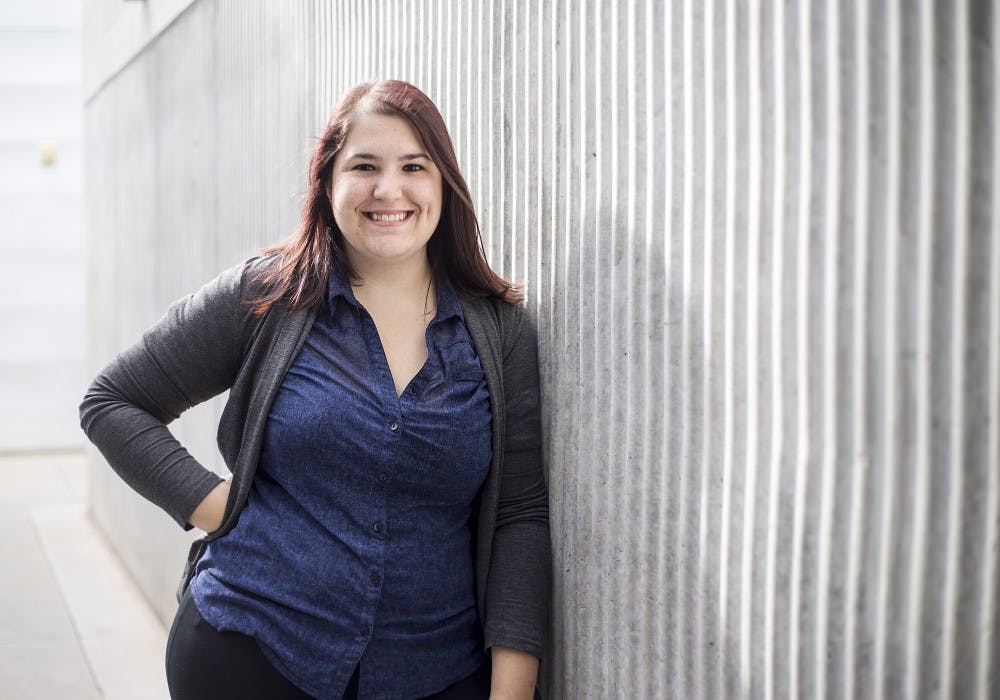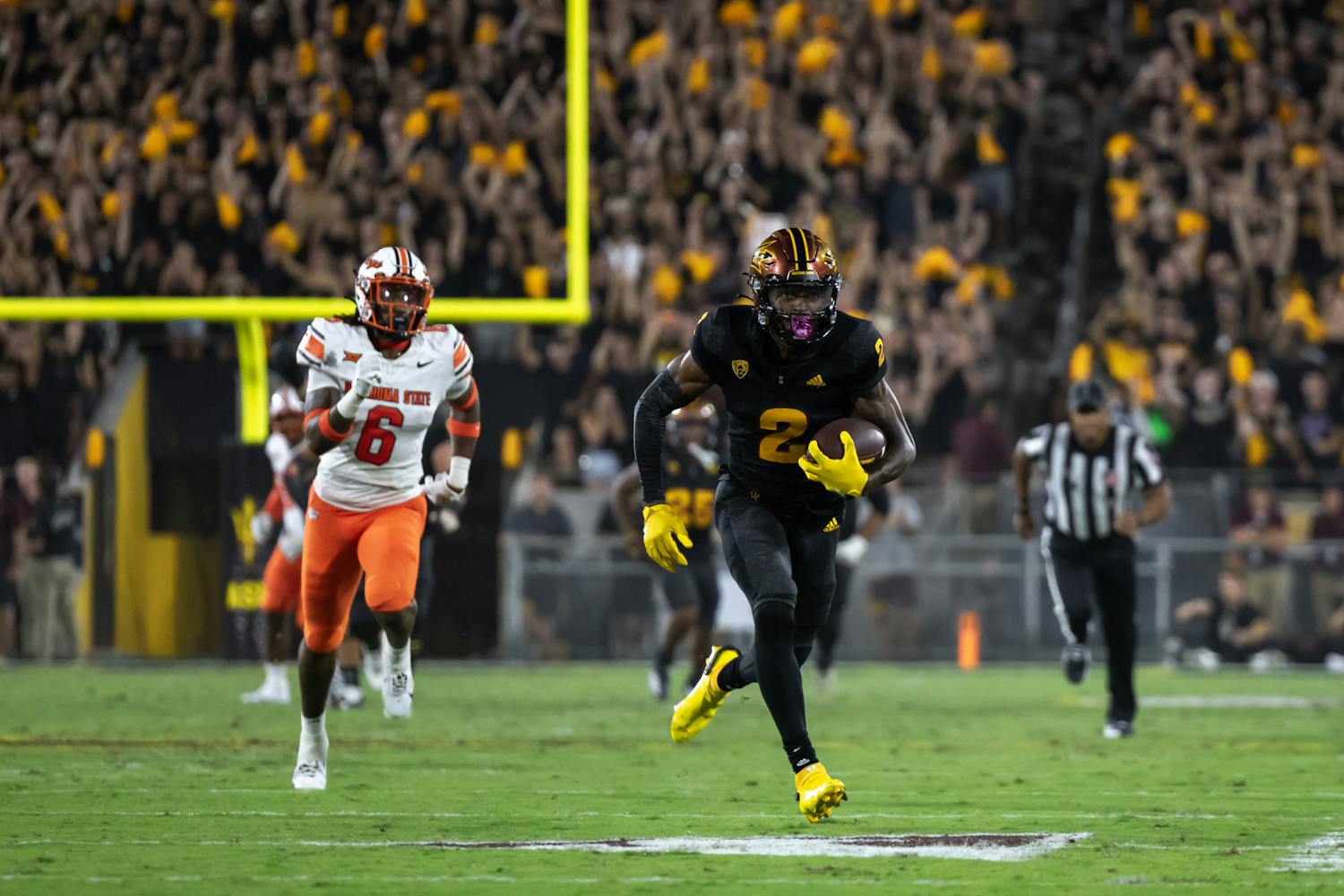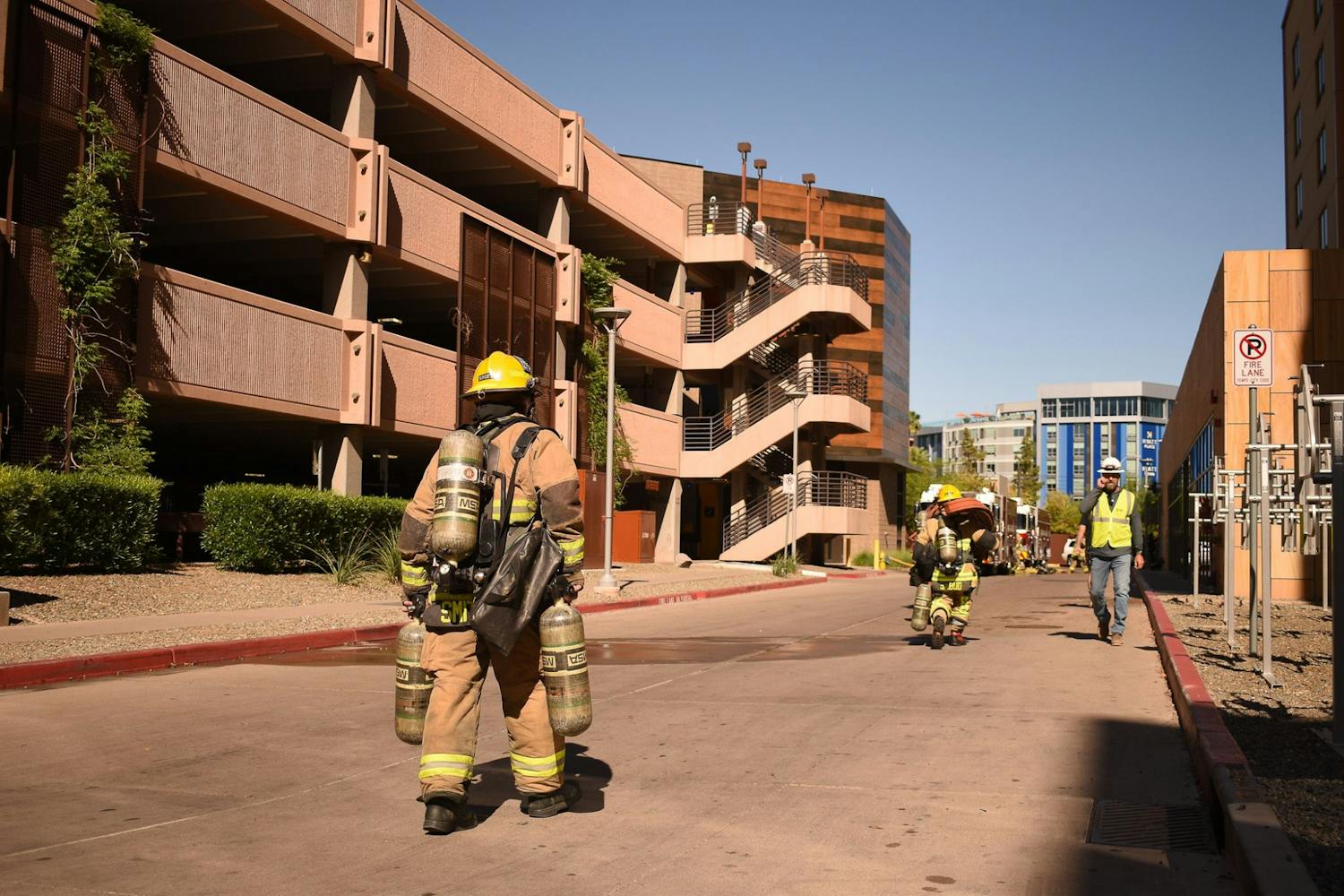For Courtney Besaw, a 2016 ASU graduate, it all started with a flier.
During her freshman year of high school, Besaw’s Algebra 2 teacher passed out fliers for a new program called CompuGirls, an initiative that uses science and math to address social issues.
Besaw and her friend Mitzi Vilchis decided the program would be a good way to stay busy that summer.
“We said ‘let’s just see what it is',” Besaw said. “I don’t think we really knew how important it would be later, it really didn’t register how important it would be for our career trajectories.”
Over the next two years, Besaw learned web coding, design and presentation skills through CompuGirls’ summer and after-school opportunities — all outside of her normal classes at McClintock High School.
Even after she graduated from high school, Besaw found herself drawn back to CompuGirls and its founder, Kimberly Scott, the director of ASU’s Center for Gender Equity in Science and Technology.
Scott founded the CompuGirls program in 2007 and has been running it for the last decade.
“When we graduated from high school, we applied to ASU and got in,” Besaw said. “Dr. Scott emailed us and said ‘Hey, we could use some research assistants. You’ve been in the program, know what it’s about, and know how important it is. Would you be interested in continuing?’"
She worked in Scott’s office for over a year while pursuing her dual bachelors' degrees.
The original idea for CompuGirls came from a similar initiative that Scott started at Hofstra University before she came to ASU in 2006.
“That program had a three-pronged approach that looked at parents, technology and mentoring,” Scott said. “So when I moved in Arizona, I wanted to focus more relentlessly and strategically on one of those prongs, and that was the technology piece while still integrating the parent element as well as the mentoring.”
But the current program focuses on more than just learning science and technology skills, Scott said.
“The girls are learning the technical skills, but alongside that, they’re also looking at values, their cultural identities, as assets to build,” Scott said. “They use the technology as a platform on which to describe and analyze culturally responsive projects.”
Scott said these projects vary from year to year and are largely dependent on students’ interests and major cultural divides.
“One thing we’ve seen when asked what are the typical projects that the girls explore, it really depends on their immediate context," Scott said. "Depending upon what’s going on in their environments that will help to drive what they’re most interested in. They have the opportunity to select their topics.”
Scott said the program is open to all girls and will hopefully help bridge the gap that women face in the science and math workforce.
“If we truly want to address the idea of disparity for girls as an underrepresented group, we need to wed those social with the technical and understand they are a part of several communities including schools and parents that need to be part of our effort,” Scott said.
Women make up only 17.9 percent of computer science jobs and 19.3 percent of physical science jobs in the U.S., according to the National Girls Collaborative Project.
Ann Koblitz, a professor who studies women in science at ASU's School of Women and Gender Studies, said sexism in the field may play a role in the disparity.
“If you look at computer science in the gamer culture for example, there is an incredible amount of sexism that goes on there, just an unbelievably vicious amount of sexist stuff,” Koblitz said. “That seems to have gotten worse lately. In computer science, there were more women in the 80s and 90s then there are now in the U.S. It really seems like that type of sexist culture has taken over the field in a way that wasn’t there in the beginning.”
Besaw doesn’t plan to go into computer science, but rather plans to pursue a doctoral degree in archaeology.
But she said that her involvement in CompuGirls — both as a student and as a researcher — reaffirmed her career path and her plan to go to college.
“As a result of it, I was able to get that experience that I wouldn’t have been able to get otherwise,” she said. “That was nice to help me realize that I can do this, this is interesting, and I like how this works. It helped foster that interest.”
Reach the reporters at Emmillma@asu.edu and rkneedle@asu.edu or follow @Millmania1 and @reillykneedler on Twitter.
Like The State Press on Facebook and follow @statepress on Twitter.




